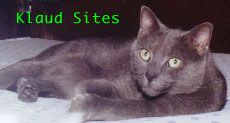
|
Using a tree to understand property concepts |
||
|
Imagine a tree. That tree exists on someone's property, so we say that the tree is his property. But in what sense is it really his property? Is it possible that the reasons for calling the tree property based on the arbitrary assumptions of one culture? Look at the tree again. It lives, it breaths, it grows. The CO2 that it draws from the atmosphere did not come from the property from which it grows. The water it absorbs did not come from this property; regardless of whether the water was from a river, or from rain, or from a well, it came from other properties. The sunlight that the tree absorbs are not from this property; its not even from this planet. So the very things from which the tree is made not from this property, and the ecosystem on which the tree depends extends far beyond this property. The owner neither pays for, nor is responsible for these items. The tree will produce oxygen. This oxygen will flow all over the earth and the owner will not be compensated for this production. The tree will support other life including birds, squirrels, insects, and fungus. None of these living things will be confined to the property on which the tree resides. The migratory birds and insects will not even be limited the same continent as the tree. The living things that the tree supports will alter other living things on other properties, sometimes benefiting, sometimes harming. Much as the tree is altered by an ecosystem that extends far beyond the borders of this property, the presence of the tree will alter the ecosystem far beyond the borders of this property. That tree will create shade and alter heating, cooling, and wind patterns. If this tree is near the border of the property, or is one of many trees, its shade will extend, and the change in wind and heating will be noticeable beyond the borders of the property. The tree's roots, and branches may extend beyond the borders of the property and its leaves will be blown to other properties where they will alter the soil on which other plants will depend, for some beneficially, for others harmfully. These leaves will be the breeding place of various insects which will not confine their existence to the property of the tree. The owner has the right to cut down the tree and sell its wood. But, what will happen if all the property owners at the same time made the same decision. What would happen if all the area's property owners cut down their trees in the same year? The excess supply of wood would disrupt the economy. The sudden absence of trees would destroy habitats for many creatures on which we depend. And the sudden surge in mulch would boost various insect populations, such as termites. The loss of the trees would compromise bird populations, and change wind, and rain patterns. So now lets look back at the tree and ask, "What aspects of this tree are clearly owned by the land owner?" The answer to this question is: only the location of the trunk. All other aspects of the tree extend beyond the boundary of the property and are neither the work of, nor the responsibility of, the land owner. |
||
|
Conclusion: There are many ways to define property. The Western definitions for property are the arbitrary assumptions of one culture, which are not absolute. Each culture will create its own definition for property and each definition will have both advantages and disadvantages. Disclaimer: The author of this analysis is neither communist, socialists, nor liberal. He merely proposes that there are times when assumptions must be questioned. And ways of seeing things must be challenged. A small population can easily rely on the Western definitions for property. But is it wise for a large population to do so? |
||
Links and References:
| income & status | |
| tree vs. solar panels | |